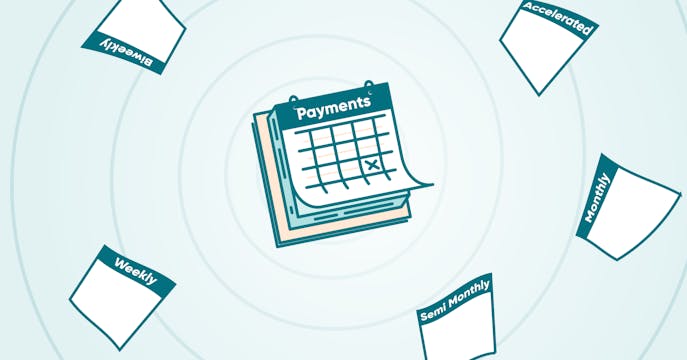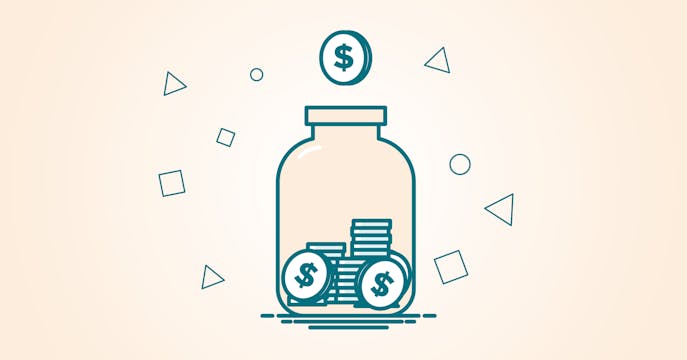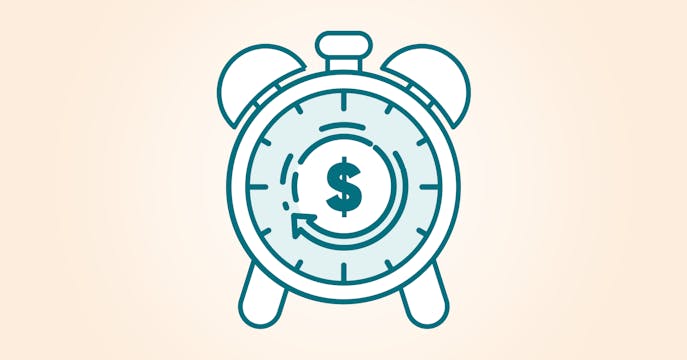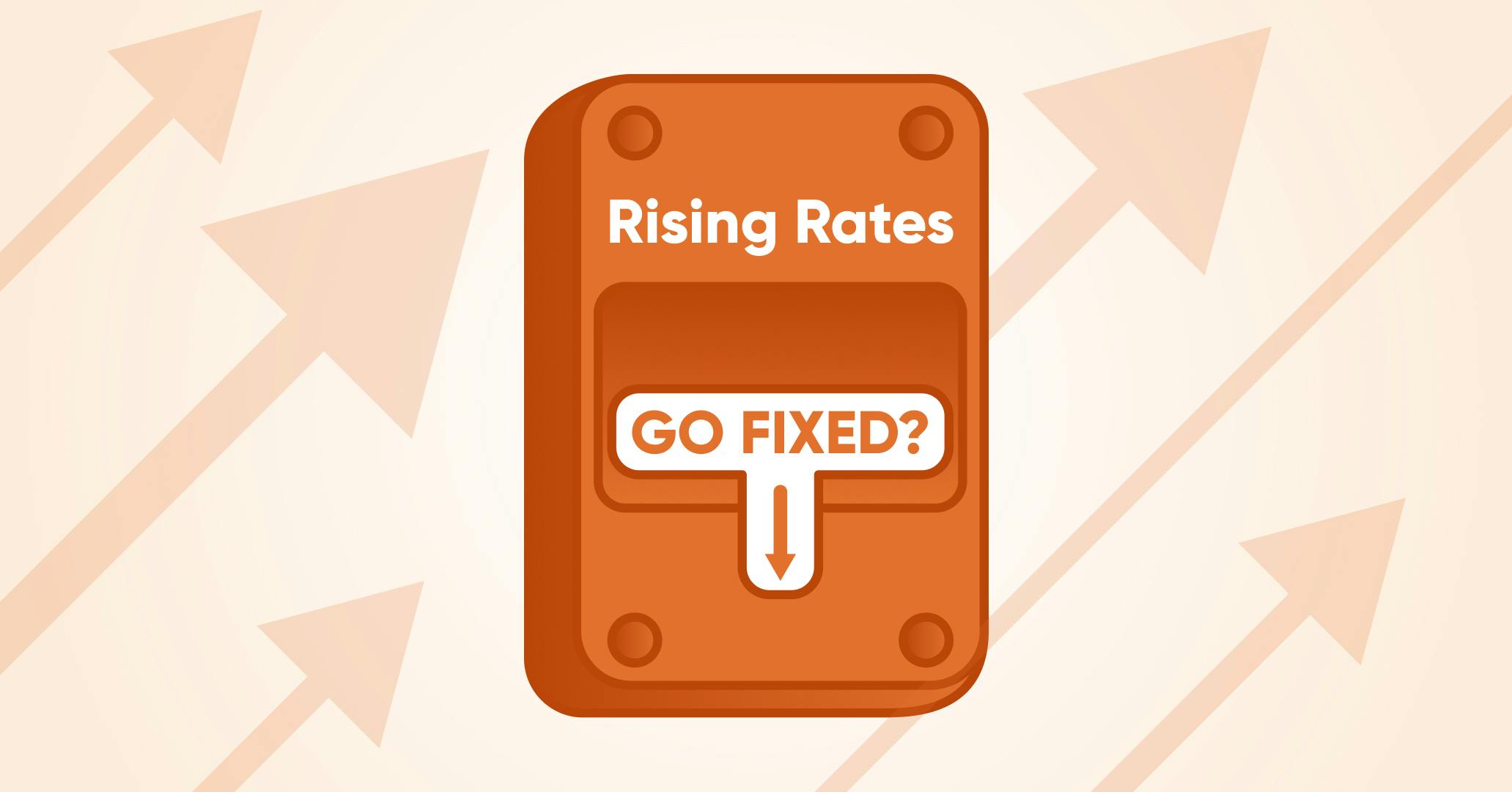Time to switch to a fixed rate?
Variable rates have been a lot lower than fixed rates, but they're on the rise.
If you're nervous about the latest market conditions, here's what to consider when comparing these two rate types.
Calm your 'rate-hike' state of alarm with great advice.
In these past months, a 5-year variable rate mortgage has been a popular choice for Canadian homeowners, overtaking the typical 5-year fixed-rate option. With the latest variable increases from the Bank of Canada (BoC), those who chose a much-lower variable rate are asking if it's time to lock into a fixed rate.
The answer depends on what you see happening with the markets — and whether you think the BoC's rate mandate will eventually tame inflation.
Here are some scenarios to consider in 'pulling the switch' from a variable to a fixed rate.
You're concerned about all these payment increases.
Do the higher payments that come with each variable hike have you stressed? Are you constantly watching the markets, unsure if you should lock in before fixed rates go higher?
"If you're worried about dealing with these hikes, switching to a fixed rate sets your payment. Even though the fixed payment will be higher, it will give stability right now with everything else going on. What we've seen so far is that each time the variable moves, so does the fixed rate. Whether or not this trend continues, locking in now ensures that you won't have to worry about a higher fixed rate later if you're truly considering a switch."
– Laura Clarke, long-time True North Mortgage broker
Not everyone loves the 'variable' risk. And now that we've seen several rate hikes, the changing payments may be wearing a little thin for some.
If you choose to lock in now to your best fixed rate, there's usually no cost associated (depending on lender and terms). But if you change your mind later, a fixed-rate mortgage has higher penalties for breaking, and some lenders may not allow it — so you may want to discuss whether a shorter fixed term may work better for your goals.
If you stick with a variable, will you still save cash?
During the pandemic, the variable rate was attractive to many because of the wide spread vs a fixed rate (the difference was around 1.50% for a while). Although the spread has narrowed with the recent BoC rate hikes, current variable rates still offer savings over current fixed rates.
"The variable is still lower than the fixed. Even if there are more rate increases coming, if you can stomach the changing payments, overall, variables do well over time," states Laura.
It can be alarming to see your mortgage payment or interest costs rise, but you're still likely saving cash — assuming you can continue to handle the payments.
What if the variable ends up higher than today's fixed rate?
That's the risk of a variable rate. It's typically lower than fixed ones on any given day, but if you lock into a fixed rate now and then the variable surpasses it during your term, you may say "whew, thank goodness I went with a fixed rate." Don't forget that with a lower variable to start, your 5-year average rate may still end up saving you money over a fixed rate.
It's generally thought that if the BoC is successful in cooling inflation and spending, then rates (probably) won't go high enough to bring lenders' variable rates above today's fixed rate. But, if it takes longer to get under control than hoped, the BoC will need to continue to raise rates over the next few months.
Another thing to keep in mind — all these hurried rate increases bring heightened worries about a recession. Experts are already suggesting that rates may need to reduce again within 2 years if rate hikes spark a downturn.
So really, to decide whether you should switch — it's about understanding your risk appetite AND looking at your current mortgage rate and term to decide if sticking with a variable rate is right for you.
Your True North Mortgage expert can outline your options, and the good news is that switching to a fixed rate can be done quickly if that's what you choose to do.
The choice that's right for you.
Your mortgage isn't always about saving the most cash. Sometimes, you want peace of mind that your budget will stay the same, as it would with the stable payments of a fixed rate.
Talk to us for mortgage advice — it only takes a few minutes to look at your details and numbers to settle your nerves. We'll help determine your best strategy for clearer decisions about your mortgage.
Plus, we can show you other ways to save on your mortgage if you need to adjust your financial goals during these changing market conditions.
We're standing by to help — real people who care about providing you with better advice to save time and stress.
Talk to us. It's a no-brainer.
We take the stress out of your mortgage

Payment Frequency, Explained
Which payment frequency should you choose? Choosing the right option can save you thousands.
Learn More
All the ways to save on your mortgage.
Here are 12 great tips to help calm your (mortgage) budget woes.
Learn More
Early Renewals
You may want to consider breaking your term early, to save cash and stress.
Learn More
